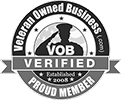Here’s how to ‘wrap up’ contributions as a gift to yourself before the year-end IRS deadline of December 31st.
Keogh Plan
A Keogh plan, or HR 10, is a tax-deferred pension plan available to self-employed individuals or unincorporated businesses. With these specialized plans, the contribution limit is up to a specific limit or 100% of earned income, whichever is lower. The IRS determines the contribution limit each year, so it’s vital to consult with a financial or tax professional regarding this year’s limit. Remember, you must make your year-end contributions by December 31st.
Solo 401(k)
The solo 401(k) plan is another well-known retirement savings strategy for self-employed professionals. This plan allows one to contribute as an employee and employer, increasing the permissible IRS contribution limit. As a business owner, you can contribute up to this year’s IRS limit through tax-deferred contributions, plus additional contributions as an employer that are tax-deductible to the business. As the year draws to a close, be sure you’ve managed your contributions to take advantage of the available tax savings.
401(k), 403(b), and 457 Plans
Managing your contributions is essential if your employer offers a traditional retirement savings plan such as 401(k), 403(b), or 457. The total amount you can contribute each year is capped unless you’re over 50 years old, in which case the limit increases through a catch-up provision. Your 401(k) contributions must be completed before December 31st. Contact your HR department or consult your financial or tax professional for this year’s limit.
Tax-Loss Harvesting
If you hold stocks or other investments, the end of the year is an excellent time to review your portfolio’s capital gains and losses. A strategy known as tax-loss harvesting aims to mitigate the investor’s total taxable income. Tax loss harvesting involves selling off an underperforming or losing investment to counterbalance the gains from a well-performing asset.
Timing is crucial to fully optimizing tax loss harvesting. Typically, it is employed near the end of the calendar year when individuals clearly understand their total income, capital gains, and losses.
While tax loss harvesting can be beneficial, investors must understand that it’s not a one-size-fits-all strategy. Before initiating this strategy, investors must consider their investment goals, risk tolerance, and tax circumstances. For this reason, engaging with financial or tax professionals is vital to help you understand whether tax loss harvesting is appropriate for your situation.
In conclusion, wrapping up your financial contributions before year-end is crucial to a confident financial future and can provide potential tax benefits. Take this time to reevaluate your goals, adjust your retirement savings contributions, and consult our financial professionals to help you start the New Year with a well-designed financial roadmap.
Sources: https://www.investopedia.com/articles/taxes/08/tax-loss-harvesting.asp


